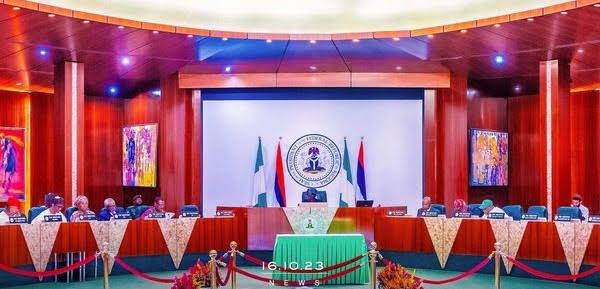FG slams Labour over Strike Action, calls for dialogue to avoid worsening hardships for Nigerians

FG slams Labour over Strike Action, calls for dialogue to avoid worsening hardships for Nigerians
The Minister of State for Labour and Employment, Nkeiruka Onyejoecha, has stated that the Nigerian Labour Congress (NLC) and the Trade Union Congress (TUC)’s decision to initiate a nationwide strike is not in the best interest of the country and its people. Onyejoecha warned that striking amidst ongoing negotiations would exacerbate economic challenges and increase the hardships faced by millions of Nigerians struggling to make ends meet.
In a statement released over the weekend by her Media Aide, Emameh Gabriel, the Minister emphasised that the government has consistently shown commitment and a positive attitude in its discussions with organized labour.
She clarified that the government’s proposals were carefully crafted, taking into account the nation’s economic situation and introducing innovative solutions.
According to the Minister, “These proposals include a comprehensive package featuring a wage increase to N60,000 for federal workers, the introduction of CNG-fueled buses, and enhanced financial access for Micro, Small and Medium Enterprises (MSMEs).
“Additionally, the government has pledged investments in strategic sectors such as agriculture, manufacturing, education, healthcare and many others that are already in the pipeline.”
“The Minister also cautioned that any new minimum wage should not result in significant job cuts, especially in the Organised Private Sector, which employs the majority of the country’s workforce.
“This sector is crucial to the country’s economic growth and stability. The government’s stance is rooted in a deep understanding of the negotiations, demonstrating its dedication to finding a balance between the needs of workers and the economic realities of the country. The goal is to establish a minimum wage that is not only realistic but also sustainable, avoiding any potentially detrimental consequences for the economy.
“By adopting this approach, the government aims to safeguard the interests of both workers and employers, ensuring that any agreement reached is mutually beneficial and does not jeopardise the country’s economic progress. This balanced stance is crucial for maintaining harmony in the workforce and driving national growth”, she explained.
She expressed disappointment that in a surprising turn of events, organised labour abruptly exited the negotiations on Friday, despite the government’s flexibility in rescheduling the meeting from Monday to Friday, May 31st, to accelerate the talks.
“Labour unions remained adamant in their demand for a staggering 1,547% wage increase, after the government’s proposed 100% increase, accompanied by various incentives for workers.
“It is widely acknowledged that the labour unions’ demands are unrealistic, given the country’s current economic position. The government takes into account the nation’s fiscal constraints and the need for sustainable economic growth. In contrast, labour’s demands seem disconnected from the economic realities, potentially jeopardising the very gains they seek to achieve.
“The government’s willingness to engage in dialogue and its demonstrated flexibility in the negotiations underscore its commitment to finding a mutually beneficial solution. However, labour’s inflexibility and unrealistic expectations may hinder the progress made thus far, ultimately harming the workers they represent and the nation as a whole, the minister added.”
She urged the unions to reconsider their decision and continue engaging in constructive dialogue to find a solution that benefits everyone, noting that a strike would disproportionately harm the most vulnerable segments of society. She concluded by calling on organized labour to uphold the principles of social dialogue and engage in good faith.





